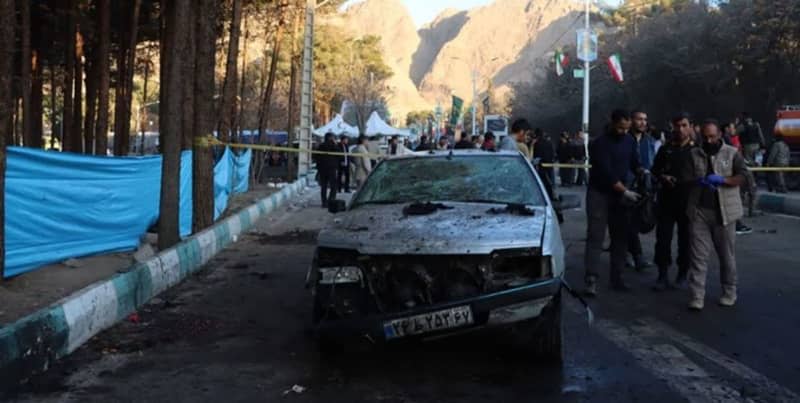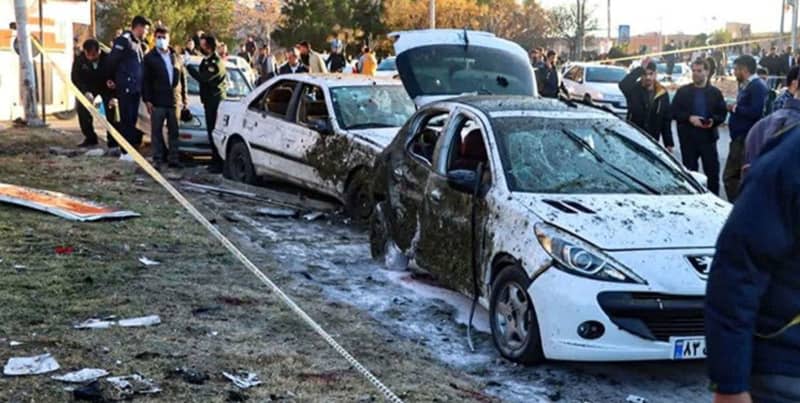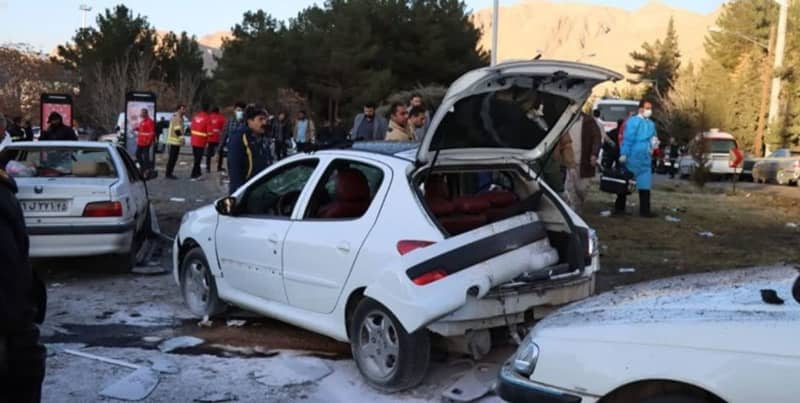Islamic State claims responsibility for deadly Iranian suicide blasts

- Oops!Something went wrong.Please try again later.
- Oops!Something went wrong.Please try again later.
The terrorist militia Islamic State claimed responsibility via its usual propaganda channels on Thursday for the devastating attack in the Iranian city of Kerman that left more than 80 dead.
According to the statement, two suicide attackers detonated their explosive belts during mourning ceremonies on Wednesday to mark the fourth anniversary of the death of Iranian General Qassem Soleimani.
In the attack near Soleimani's tomb, 84 people were killed and 284 injured in two powerful blasts.
It was the deadliest attack in the 45-year history of the Islamic Republic.
Islamic State is a Sunni Muslim organization which views Shiite Muslims as heretics. Iran is a predominantly Shiite state, the biggest in the world.
The UN Security Council condemned the bombings as a "cowardly terrorist attack."
"The members of the Security Council reaffirmed that terrorism in all its forms and manifestations constitutes one of the most serious threats to international peace and security," the UN said in a statement.
"The members of the Security Council underlined the need to hold perpetrators, organizers, financiers, and sponsors of these reprehensible acts of terrorism accountable and bring them to justice."
The European Union also condemned the attack as an act of terrorism.
Iran's IRNA news agency had earlier reported that evaluation of video surveillance had led investigators to the conclusion that a suicide bomber was behind at least one of the explosions.
Iran's emergency services on Thursday put the death toll at 84. In the immediate aftermath of the attack on Soleimani's mourners, the number of dead had been put at over 100.
The head of Iran's National Medical Emergency Organization, Jafar Miadfar, attributed the confusion surrounding the casualty figures with the condition of the bodies.
Iran's government called it a terrorist attack. But the leadership in Tehran had reacted cautiously and avoided apportioning blame.
Soleimani, who had led the Quds Force of Iran's powerful Islamic Revolutionary Guards Corps (IRGC), was killed in a US drone strike in Iraq in 2020.
Before Islamic State's claim of responsibility, the State Department rejected speculation the US was involved in the attack and said there was no reason to believe Israel was behind it either.
Also before the Islamic State's statement, an editorial in Iran's arch-conservative Kayhan newspaper blamed Israel for the attack.
There are many reasons to assume "that the Zionists were involved in the terrorist explosions."
The authors demanded swift revenge, warning that failing to retaliate could lead to other attacks, perhaps in the capital Tehran.
Israel is currently at war with the Sunni Islamist militant group Hamas, which controls the Gaza Strip and murdered over 1,200 people in terrorist attacks on Israel on October 17.
Iran has long said it is an arch-enemy of the Jewish state and wishes it to be wiped off the planet.



